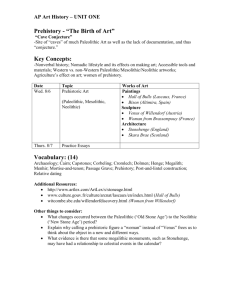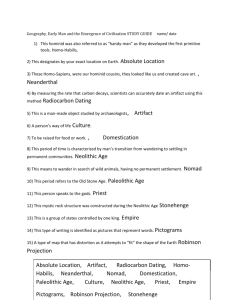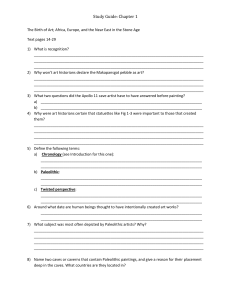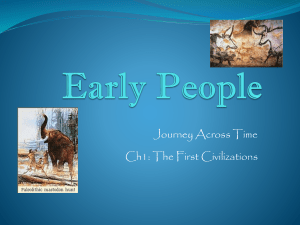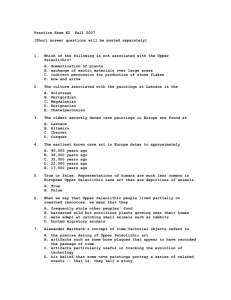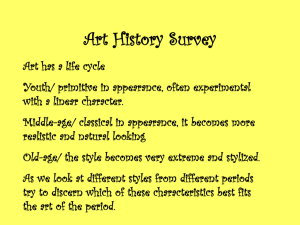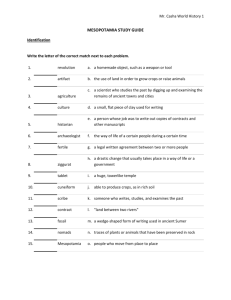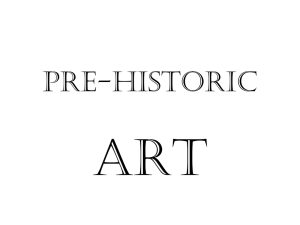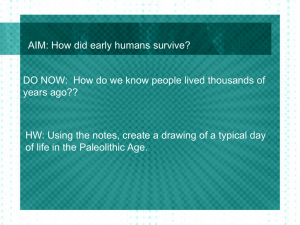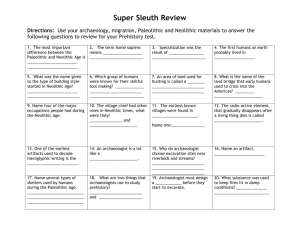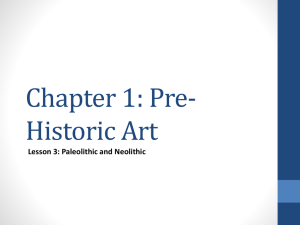Quiz 1: The Paleolithic and Neolithic Eras Instructions: Write a 1
advertisement
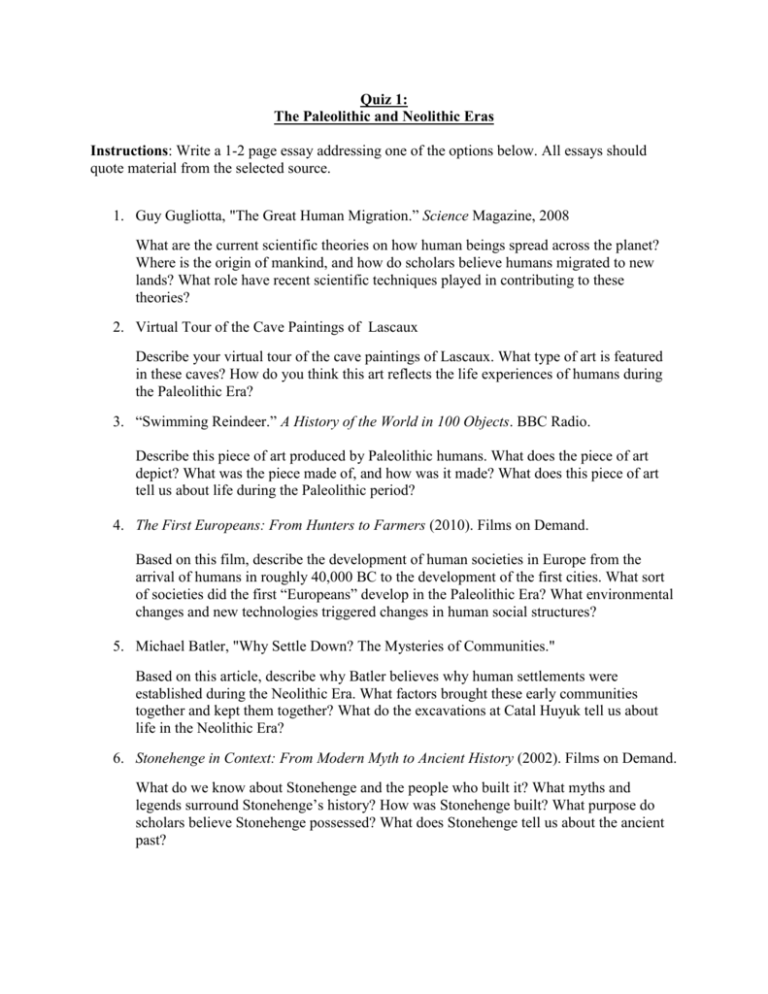
Quiz 1: The Paleolithic and Neolithic Eras Instructions: Write a 1-2 page essay addressing one of the options below. All essays should quote material from the selected source. 1. Guy Gugliotta, "The Great Human Migration.” Science Magazine, 2008 What are the current scientific theories on how human beings spread across the planet? Where is the origin of mankind, and how do scholars believe humans migrated to new lands? What role have recent scientific techniques played in contributing to these theories? 2. Virtual Tour of the Cave Paintings of Lascaux Describe your virtual tour of the cave paintings of Lascaux. What type of art is featured in these caves? How do you think this art reflects the life experiences of humans during the Paleolithic Era? 3. “Swimming Reindeer.” A History of the World in 100 Objects. BBC Radio. Describe this piece of art produced by Paleolithic humans. What does the piece of art depict? What was the piece made of, and how was it made? What does this piece of art tell us about life during the Paleolithic period? 4. The First Europeans: From Hunters to Farmers (2010). Films on Demand. Based on this film, describe the development of human societies in Europe from the arrival of humans in roughly 40,000 BC to the development of the first cities. What sort of societies did the first “Europeans” develop in the Paleolithic Era? What environmental changes and new technologies triggered changes in human social structures? 5. Michael Batler, "Why Settle Down? The Mysteries of Communities." Based on this article, describe why Batler believes why human settlements were established during the Neolithic Era. What factors brought these early communities together and kept them together? What do the excavations at Catal Huyuk tell us about life in the Neolithic Era? 6. Stonehenge in Context: From Modern Myth to Ancient History (2002). Films on Demand. What do we know about Stonehenge and the people who built it? What myths and legends surround Stonehenge’s history? How was Stonehenge built? What purpose do scholars believe Stonehenge possessed? What does Stonehenge tell us about the ancient past?
